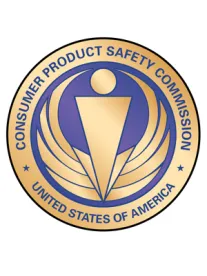As 2020 dawns – and with it jokes about perfect vision – the U.S. Consumer Product Safety Commission (CPSC) is feeling its way through a foggy vision of its future, but there are a few signs in view for CPSC-regulated companies.
The CPSC’s future, of course, hinges on what its leadership will look like, and that is an open question. The five-member CPSC is down one commissioner and without a permanent chairman. Democrat Bob Adler is the acting chair, but he may find his ability to drive official agency actions limited by a 2-2 party split: Adler is joined by fellow Democrat and former chair Elliot Kaye opposite Republicans Peter Feldman and Dana Baiocco.
Recent votes suggest that the commissioners may not adhere to party lines as much as commissioners of prior eras have, with a variety of shifting coalitions forming around particular issues. A few examples from the 25-plus votes taken in drafting and adopting the agency’s Fiscal Year 2020 Operating Plan:
-
On an amendment to direct CPSC staff to press for changes to the voluntary standard for window blinds, Baiocco joined Adler and Kaye to pass the amendment, with Feldman and then-Commissioner Ann Marie Buerkle in the minority.
-
On an amendment to require CPSC communications staff to consult more frequently with the Commission, Kaye joined Baiocco and Feldman in voting yes, while Adler and Buerkle voted no.
-
On an amendment to require more staff consultation with the Commission on voluntary standards activities for emerging technologies, both current Republicans joined the Democrats, leaving Buerkle in lone opposition, but Baiocco expressed significant reservations before voting yes.
More often, though, the commissioners’ core philosophical differences remain. This is not to suggest that commissioners take positions on safety policy for partisan reasons, but merely that the philosophies that align people toward one party or another may also inform their views of safety policy issues. Another example from the Operating Plan votes, Feldman and Baiocco attempted to remove language that seeks to create a Consumer Ombudsman within the agency. Their amendment failed 2-3, with Buerkle crossing party lines, but any further action on that issue may stall unless it wins Feldman’s or Baiocco’s support.
It is also uncertain when or if the President will nominate a new commissioner or permanent chair (the two need not be the same person). There were reports recently that suggested the White House is considering nominating Nancy Beck, currently an official at the Environmental Protection Agency (EPA) and formerly an executive at the American Chemistry Council.
Even if the President sends a nominee to the Senate, it is challenging for any administration to push nominees through in a typical election year, and this election year may be even more contentious than others. While we express no opinion on Ms. Beck’s qualifications, should she be nominated, her work at a key trade association in the CPSC space would likely be a significant focus of criticism.
Moreover, Senate Democrats – several of whom are running for President and the chance to submit their own nominee(s) – understand that the current CPSC vacancy presents a rare opportunity to shift the direction of an independent agency on day one of a new administration. These same tensions limit the chances that the Senate will pass six CPSC bills that cleared the House earlier this year.
Assuming that no new commissioner arrives and none of the current commissioners resigns, it seems unlikely that the CPSC will be unusually active in 2020. Still, companies regulated by the CPSC should look out for these trends in the product safety landscape:
-
Consensus more the exception than the rule. We have seen majorities form in some policy areas, such as furniture tip-over and liquid nicotine packaging, making rulemaking or enforcement efforts in those spaces more probable. However, these areas seem likely to be exceptions, rather than the rule.
-
Increase in compliance efforts. We expect the agency to be more active in the area of compliance, particularly defect investigations and recalls. The Commission has delegated most of its recall authorities to various of its staff offices, particularly the Office of Compliance and Field Operations (EXC).
The Commission votes on compliance matters only rarely, with most decisions made by staff under delegated authority. The chairman is the CPSC’s chief administrative officer, overseeing virtually all of staff’s daily work. Other Commissioners can intervene if they can bring enough pressure or form a majority, but this happens infrequently. The chair can therefore use its administrative function to shape day-to-day decision-making and, as a consequence, the agency’s enforcement priorities.
Acting Chairman Adler has long advocated for greater enforcement activity and tougher lines in defect investigations. CPSC-regulated companies should expect an EXC that reflects his philosophy, likely pushing for recalls or greater remedies in more cases. Even if companies are not willing to incur the costs of litigating against a recall, they should lean on experienced counsel to protect their brands as much as possible.
-
Other agency activity – and the need for company engagement – continues. CPSC staff will likely be as active as ever in other areas, such as voluntary standards bodies. For that reason, CPSC-regulated companies should stay engaged. And when issues bubble up to the Commission – whether company-specific compliance matters or broader policy discussions – companies should continue to engage with commissioners directly. This is always good practice, but the shifting philosophical alignments discussed above make predicting outcomes more difficult and direct engagement more vital.
In short, 2020 seems likely to be a light year for formal action at the CPSC, but regulated companies should continue to pay close attention.



 />i
/>i

